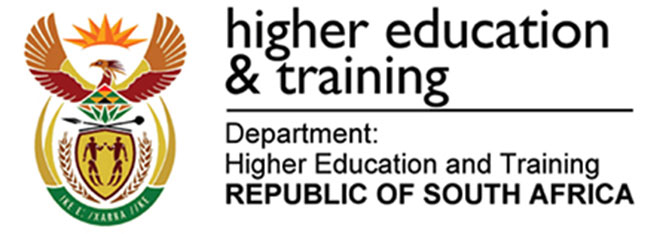Who is a Career Development Practitioner?
A career development practitioner provides services that help people manage their careers, make occupational and study decisions, plan career transitions and find career information.
Career Development Practitioners work in many diverse environments and some may therefore also need to possess certain specialised knowledge, skills, attitudes and values. This results in a differentiation between core competencies that all CDPs need to possess and specialised competencies that only certain CDPs need to possess. This gives rise to various types of career development practitioner, namely;
1. Entry Level CDP (ELCDP);
An ELCDP is qualified to provide career, financial aid, educational institution, learning programme, entry requirement, labour market, job availability, career trending, National Qualification Framework and Occupational Framework for Occupations (OFO) information to clients. An ELCDP is able to collect, evaluate and assimilate, career related information and is able to refer clients to these various sources of information. The ELCDP is able to conduct information sharing sessions with both individuals and groups.
2. Advanced Level CDP (ALCDP)
An ALCDP meets all the requirements of the ELCDP, but has additional knowledge, skills, values and attitudes which enable them to provide more advanced/specialised services. These include but are not limited to providing career advice and guidance, applying career development theories and decision-making models, administering non-standardised assessments, assisting clients in understanding the results of these assessments in relation to their personal circumstances, developing possible career and study options with the client and together with the client, designing a plan of action for these possible career and study options.
ALCDPs are also able to perform employability interventions such as assisting clients to develop a cover letter and a Curriculum Vitae (CV), checking the quality of work applications, preparing clients for an interview, developing networks and conducting related job seeking activities. The ALCDP is able to conduct career development interventions with individuals and groups.
3. Specialist CDP (SCDP)
A Specialist Career Development Practitioner (SCDP) meets all the requirements of the ALCDP and is a professional specialist in one or more areas of career development.
Areas of specialisation may include but are not limited to career counselling, executive coaching, career development research, course content development, CDP trainers, psychometric testing, outplacement centre developers and others as the relevant professional body may determine from time to time.
SCDPs may be registered with one or more related professional bodies such as the the Health Professions Council of South Africa (HPCSA), and the Institute for People Management (IPM), the Federation of African Professional Staffing Organisations, or others.
Where do they work?
Career development practitioners work in a range of settings. In South Africa, they usually work in; schools, TVET colleges, universities, Department of Labour (DoL), Sector Education and Training Authorities (SETAs), Department of Higher Education and Training (DHET), National Youth Development Agency (NYDA), Department of Correctional Services (DCS), Libraries, Recruitment Agencies, organisations, private practice, Non-profit Organisations including religious institutions, community centres
What do they do?
Career development practitioners provide the services to individuals of any age and at any point throughout their lives, to make educational, training and occupational choices and to manage their careers. The services can also be offered to various groups and may be face-to-face or at a distance (including help lines and web-based services).
- Career counselling and guidance
- Career education
- Job placement
- Employment services
- Recruitment
- Career coaching
- Training
- Mentoring
- Resume preparation
- Career planning
- Administering and interpreting vocational tests
- Teaching job hunting strategies
- Coordinating work experience or internships.
How to become a Career Development Practitioner?
There are various paths one can follow in order to become a CDP, depending on which level one wants to start. The Framework recognises all these practitioners within different levels. It also provides for the career development of CDPs and articulation between different levels.
1. Career Development Information Officer: The first qualification developed and registered for CDPs (SAQA ID: 96372; Occupational Certificate: Career Development Information Officer) is an Entry Level Qualification (NQF level 5) on the Competency Framework and does not require registration with the HPCSA.
Qualification: Occupational Certificate: Career Development Information Officer
Admission requirements: NQF Level 4 qualification, National Senior Certificate, Senior Certificate or National Certificate Vocational
2. Career Development Practitioner: (referring to Career Counsellors, Career Consultant, Career Advisor or Vocational Guide)
Qualification: Bachelor of Psychology (Counselling/Psychotherapy)
Admission requirements: NSC bachelor admission
More information on the learning path way can be obtained on this NCAP link
3. Through Recognition of Prior Learning (RPL). RPL is meant for applicants who have acquired non-formal and informal learning through channels such as job training, work experience, self-study, volunteer activity and other experience, may be assessed for admission to a professional designation if found to meet minimum competencies required to perform as a CDP within a particular registration category. For more information on the RPL policy please click on this link

